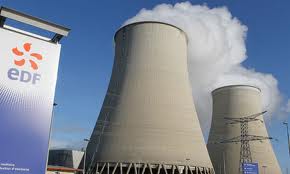The Return of Centralized Energy Planning in Britain
< < Go Back
 The United Kingdom has reintroduced central planning into its energy industry, says Colin Robinson, Professor of Economics at the University of Surrey.
The United Kingdom has reintroduced central planning into its energy industry, says Colin Robinson, Professor of Economics at the University of Surrey.
– The U.K. energy market was very competitive only a decade ago, beginning in the 1980s when the Secretary of State for Energy, Nigel Lawson, pushed for free markets and realistic energy pricing.
– However, governments have since instituted centralized planning in the energy market.
– While the states do not own the energy companies, governments have worked to constrain fuel choices, encouraging renewables instead of coal.
The new U.K. energy policy, which really began around 2007, is driven by two things: energy supply security and avoiding climate change. Regulators claim that free energy markets will not provide enough energy security on their own, nor will they be able to avoid the impact of climate change. As such, the government has stepped in to deal with these alleged “market failures.”
The biggest problem with a centrally planned system like this one is that it assumes that the government has a vast amount of knowledge about the industry being planned and about the future, but that future is far from certain. Especially with climate change — a driving factor in the United Kingdom’s energy policy — there is a great deal of unknown about the causes and impact of global warming, and central planners have no way to predict future changes in the climate.
More From NCPA:



